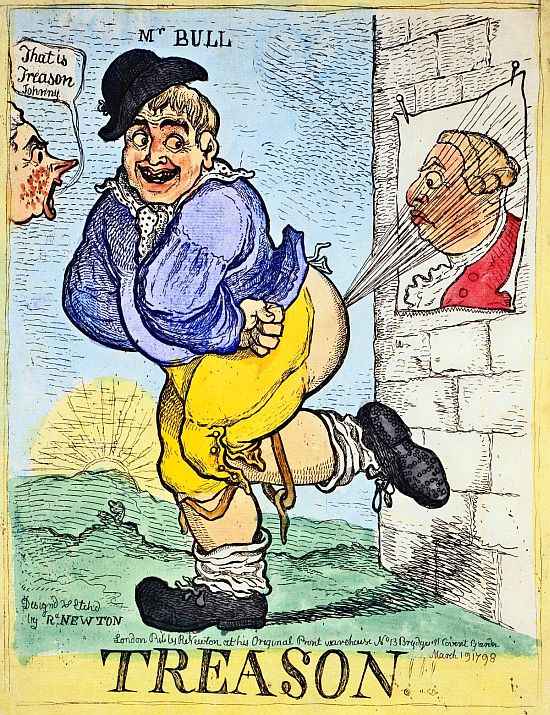Satire is both an urgent topic and one with a long history. Journalists, and satirists themselves, regularly make the claim that “satire is dead” in a world of “fake news”, or news that seems too incredible or too unpalatable to be true. Yet satire continues to emerge, in forms both professional and amateur, elitist and popular.
Satire: Deaths, Births, Legacies looks to draw together researchers and practitioners working on projects which variously historicize, problematize, theorize, teach, and perform satire and satirical material.
This project seeks to contribute meaningfully to what is becoming a national conversation about the form, function, and future of satire.
The project is directed by Dr Jo Waugh and Dr Adam James Smith.

So—satire is no more—I feel it die—
No Gazetteer more innocent than I—
And let, a’ God’s name, every fool and knave
Be graced through life, and flattered in his grave.
Alexander Pope, ‘Epilogue to the Satires’ (1738)
—oOo—
2018 marks 350 years since the birth of Alexander Pope: poet, essayist and editor of The Dunciad, a landmark work of eighteenth-century satire which has proven both implacably canonical and endlessly controversial. Three hundred years after the birth of Britain’s most notorious satirist, it is now common-place to observe that satire is dead.
In 2017, celebrated satirist Armando Iannucci cautioned against the dangers of making the American President a figure of fun, whilst also lamenting that the state of British politics was now ‘too silly’ to satirise. Journalist Emma Burnwell has this year concluded that populist leaders have won power across the globe by assuming the extremist identities that satire once imagined as absurd for comic effect. In a social media environment that makes satire personally and professionally dangerous for the purveyors and targets of satire alike, we are left to wonder if this new era of post-truth must also be one of post-satire.
Proclamations of the death of satire are not new. Since as early as the eighteenth century, commentators have been asking questions about the health and validity of the genre: Can satire ever change that which it attacks, or does it simply reinforce the views of its readers? Is satire ever ethically sound? Does satire serve a legitimate social function other than entertainment? Indeed, the cases for and against satirical forms have proven as persistent as the form itself. So too have proclamations of its demise: Pope himself playfully suggested that satire was on its death bed as early as 1738.
The question of satire and its contemporary relevance is therefore both an urgent one, and one with a long and fascinating historical context. Examining satire, parody, pastiche, and caricature, this conference will comment on the broader social function of satire, variously confirming, complicating, or condemning narratives of its decline. It seeks to examine moments in British literary history, from the eighteenth century though to the present day, when satire has been celebrated as successful or condemned as ineffective, unnecessary or obsolete. It will celebrate and interrogate the legacies of eighteenth-century satire, foregrounding prior supposed deaths and rebirths of the form to consider the extent to which reports of satire’s death have been exaggerated.
Follow us on Twitter: @SatireNoMore
